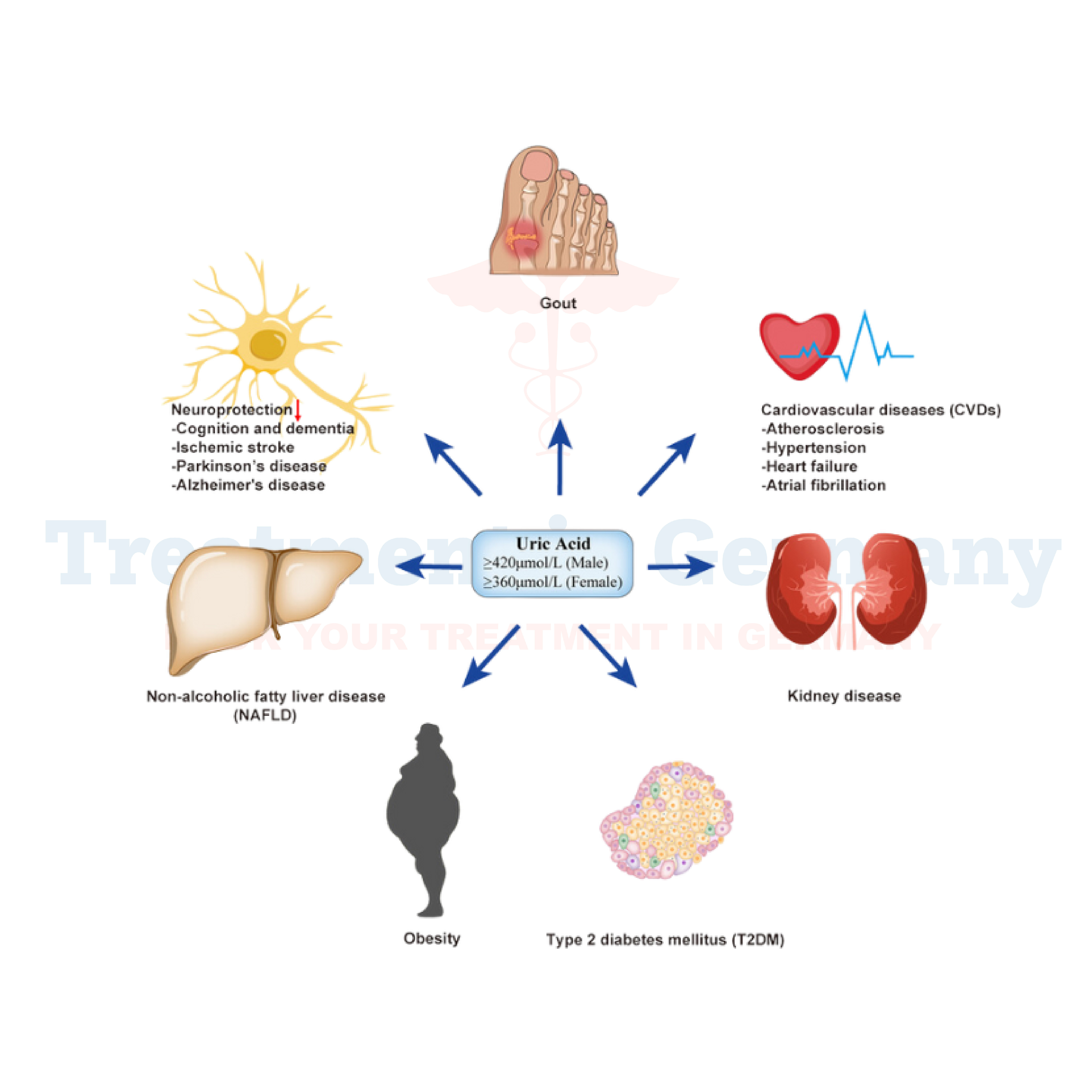What is Hyperuricemia?
Hyperuricemia is a medical condition characterized by elevated levels of uric acid in the blood. Uric acid is a waste product formed when the body breaks down purines, substances found in certain foods and beverages.
Normally, uric acid dissolves in the blood and is excreted from the body through urine. However, when the body produces too much uric acid or fails to eliminate enough of it, hyperuricemia occurs.
Side Effects of Hyperuricemia
If left untreated, hyperuricemia can lead to several health complications, including:
- Gout: A form of arthritis caused by the deposition of uric acid crystals in joints, leading to sudden and severe joint pain, swelling, and inflammation.
- Kidney Stones: Uric acid crystals can also accumulate in the kidneys, forming stones that may cause pain and blockage of urine flow.
- Chronic Kidney Disease: Long-term hyperuricemia can contribute to the development or progression of kidney disease.
How is Hyperuricemia Diagnosed?
Diagnosing hyperuricemia typically involves a combination of medical history review, physical examination, and laboratory tests:
- Blood Tests: A simple blood test measures the level of uric acid in your blood. Levels above 6.8 mg/dL (milligrams per deciliter) in women or 7.0 mg/dL in men are considered elevated.
- Urine Tests: Sometimes, a 24-hour urine collection may be required to measure how much uric acid your kidneys are excreting.
Potential Treatment of Hyperuricemia
Treatment of hyperuricemia aims to lower uric acid levels in the blood and prevent complications:
- Lifestyle Changes: Adjusting your diet to reduce purine-rich foods (like organ meats, seafood, and alcohol), staying hydrated, and maintaining a healthy weight can help manage uric acid levels.
- Medications: Your doctor may prescribe medications such as allopurinol or febuxostat to decrease uric acid production or probenecid to enhance uric acid excretion.
- Treatment of Complications: If gout or kidney stones develop, additional medications or procedures may be necessary to alleviate symptoms and prevent recurrence.
👉 Contact us for further information and receive a complimentary consultation.


.webp)
 (1).webp)

.webp)
 (1).webp)


.webp)
 (1).webp)

.webp)
 (1).webp)
